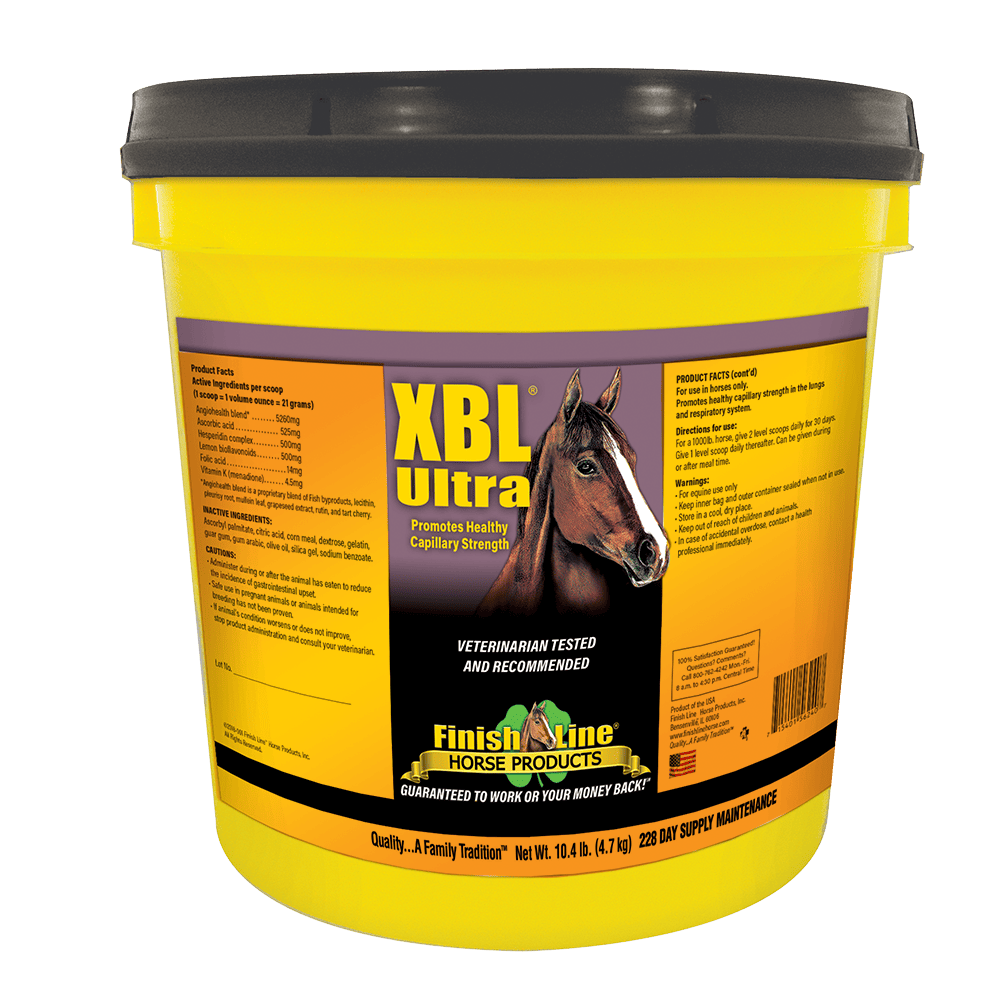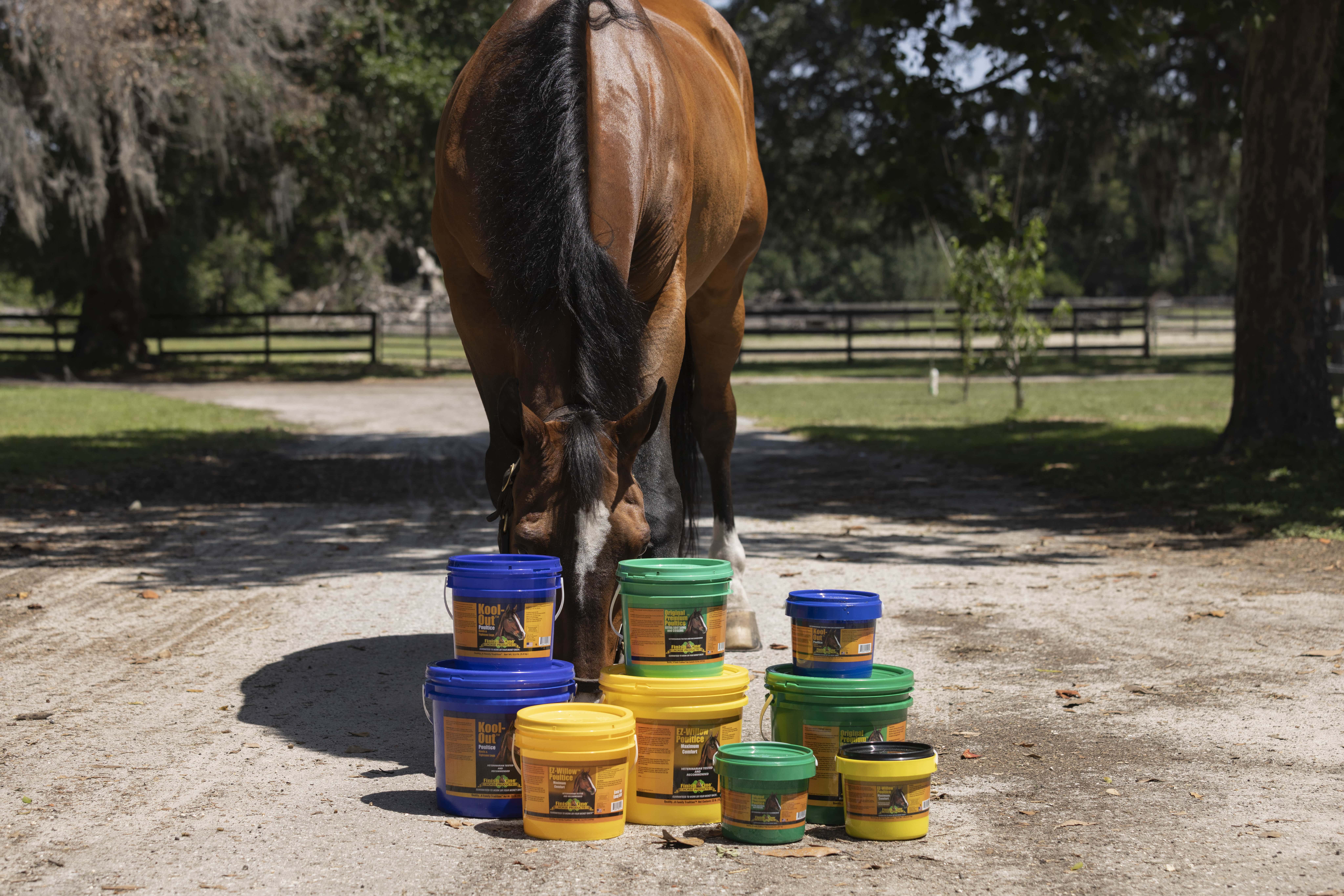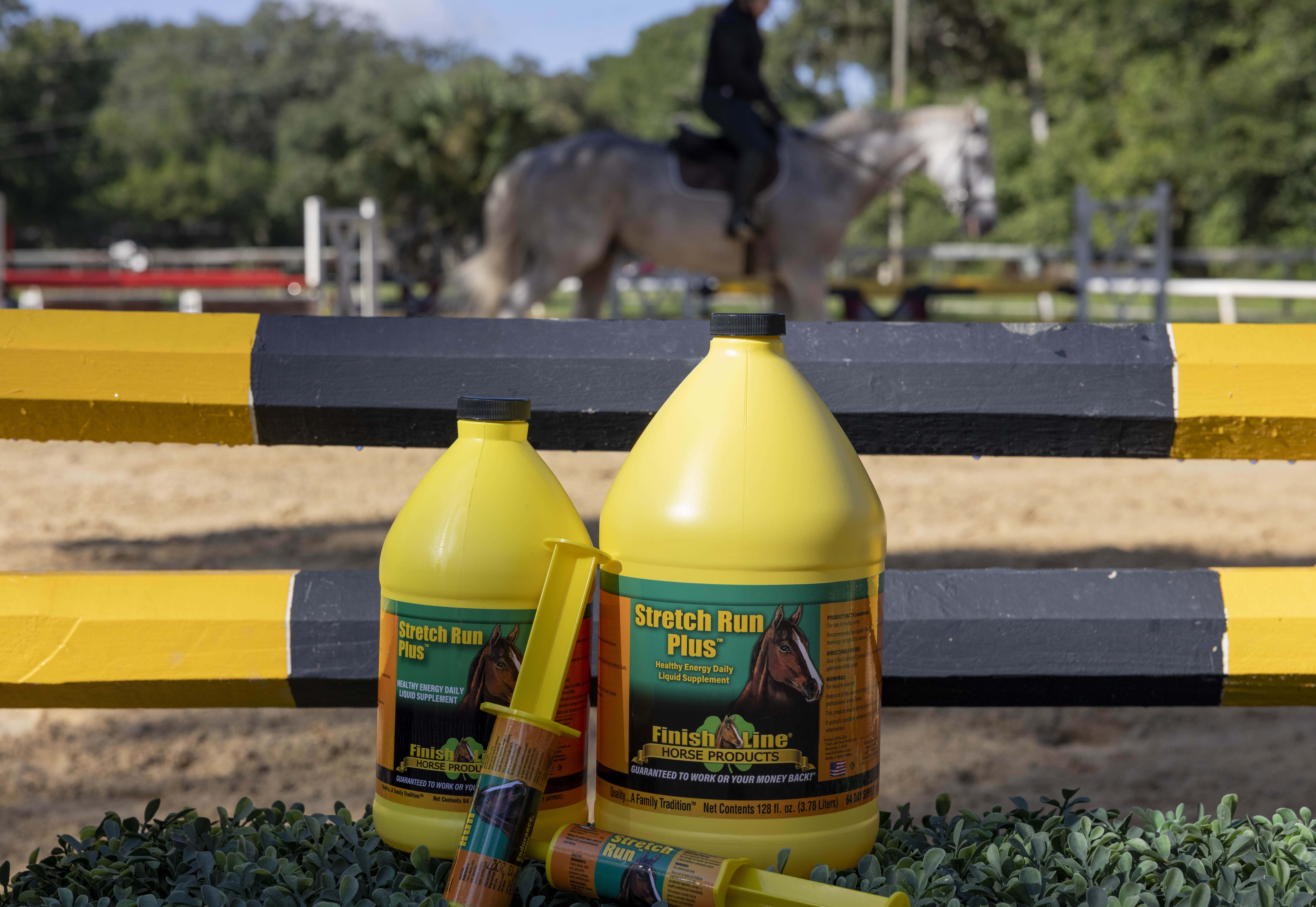In today’s complex world of performance horses, owners and trainers are faced with a plethora of issues. EIPH (Exercise-induced pulmonary hemorrhage) is one that surfaces when a horse is undergoing intense exercise.
According to EquiSearch.com, the presence of blood in the lung causes a significant inflammatory reaction that leads to thickening of the lung tissues, again making them less efficient or totally nonfunctional in terms of gas exchange. In addition, the horse with free blood in his lungs is at high risk of developing a variety of infections.
Commonly thought of to affect race horses, it also has an impact in other disciplines.
Percentage of horses affected by EIPH: Exercise-Induced Pulmonary Hemorrhage
- THOROUGHBRED RACING….Over 90%
- STANDARDBRED RACING…Over 90%
- JUMPERS….Over 12%
- BARREL RACERS….Over 50%
- POLO PONIES….Over 30%
- 3 DAY EVENTERS….Over 40%
- STEEPLE CHASE….Over 70%
- QUARTER HORSE….Over 60%
With those types of numbers, it is easy to understand the importance of keeping a horse’s capillary strength at an optimum condition. Many in the equine industry have sought out a variety of treatments or solutions. One of the most popular is Lasix, however, this has been under fire recently for being controversial. USA Today has tackled this topic leading up to the prestigious Kentucky Derby by speaking to industry professionals.
“I think as an industry, we’re looking at everything we can to try to improve what’s happening,” said Elliott Walden, the president and CEO of WinStar Farm, which raced Triple Crown winner Justify in partnership last year. “I’m not sure on what exactly will transpire with (the proposed Lasix phaseout). We’ve run horses in Dubai and (England) and felt like they ran their race in those situations, so I think the best horses will win with or without Lasix.”
While the awareness of the potential ban on Lasix becomes more of a reality the question remains – how do you strengthen capillaries in horses to help them combat any potential lung related issues?
Folic Acid, Vitamin B12, Vitamin C (Ascorbic Acid), Vitamin K and bioflavonoids are important variables. These substances are supposed to strengthen lung capillaries, thereby reducing their tendency to rupture during strenuous exercise.
Overall respiratory health management is also important. Because the low-grade lung inflammation associated with repeated bleeding episodes can worsen EIPH over time, it is very important to minimize further insults to the respiratory system. Horses should be kept in well-ventilated barns, bedded on low-dust materials, and fed high-quality feedstuffs. Many trainers use complete feeds (that include roughage) to minimize the risk of inhaling dusts and molds from hay, which can worsen airway inflammation.
Finish Line® Horse Products does offer an alternative.
XBL® ULTRA POWDER has the following benefits for your horse:
- Promotes a healthy circulatory system, including healthy capillary strength in the lungs to prevent bleeding
- Contains high levels of vitamin C, K and bioflavonoids, along with Finish Line®’s Angiohealtlh Blend
- Great for horses in heavy training and essential for performance horses.
And remember to always consult your veterinarian!









